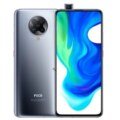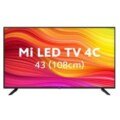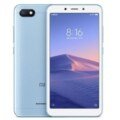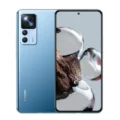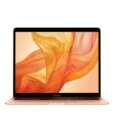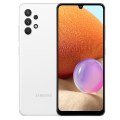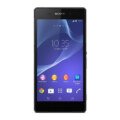Xiaomi 12S Pro
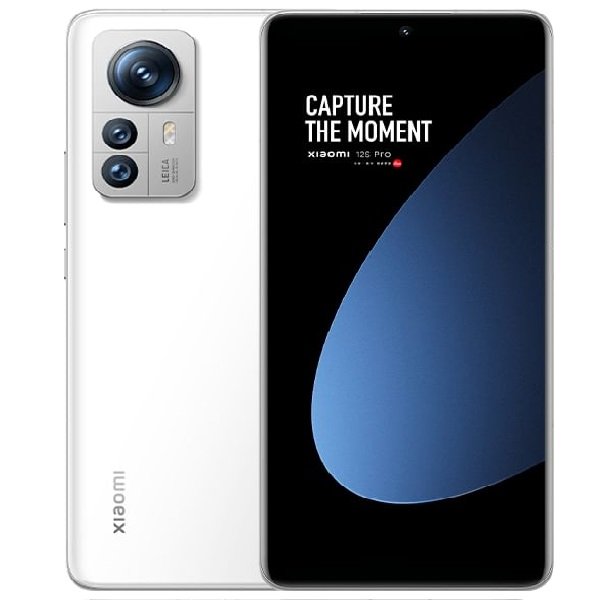
Xiaomi 12S Pro - Specs
Overview
| Launch | 07 July 2022 |
| Status | Available |
| Network Technology Global wireless standard for telecommunication | GSM, CDMA, HSPA, EVDO, LTE, 5G |
| Price (Initial) | ₹ 55k |
Design
| Body Type Design Type called form factor refers to a mobile phone's size, shape, and style as well as the layout and position of major components of phone. There are three major form factors seen in mobile phones => bar phones, folding phones and sliding phones. | Bar Type |
| Dimensions | 163.6 x 74.6 x 8.2 mm or 8.7 mm |
| Weight | 203 g / 204 g (7.16 oz) |
| Colors | Gray, White, Purple, Green |
Display
| Display Type Display Technology => A number of display technologies and types used in mobile phones => TFT (Thin Film Transistor), IPS (In-Place Switching), OLED (Organic Light Emitting Diode), AMOLED (Active-Matrix Organic Light-Emitting Diode), Super AMOLED (an even advanced version of AMOLED), Resistive Touchscreen (Resistive touchscreens contain two layer of conductive material with a very small gap between them which acts as a resistance), Capacitive Touchsceen (Capacitive touchscreen technology consists of a layer of glass coated with a transparent conductor) | LTPO AMOLED, Display |
| Pixel Density Pixel Density (PPI) is refers to the concentration of pixels on a particular display, measured in pixels per inch (ppi). Pixel density is calculated by dividing the diagonal pixel resolution of a display by its diagonal size, higher pixel density better display quality. | 521 PPI Density |
| Display Size Size of the area where pictures and videos are displayed. | 6.73 Inches, 109.4 Cm2 (~89.6% Screen-to-Body Ratio) |
| Resolution | 1440 x 3200 Pixels, 20:9 Ratio |
| Display Colors Display Colors is refers to the number of different shades of colors that the screen is capable of displaying => 64K colors, 256K colors and 16 million colors, Obviously 16M is highest available range of colors and better than others. | 16M, Colors |
| Protection Display Protection => Gorilla Glass is a special alkali-aluminosilicate glass shield with exceptional damage resistance that helps protect mobile displays from scratches, drops, and bumps of everyday use, It is always better to go for a smartphone with Gorilla Glass for that added protection and peace of mind. | Corning Gorilla Glass Victus |
Camera
| Primary Camera Camera is able to capture photographs and usually videos, The most important characteristics of a camera are the resolution (measured in megapixels), lens focus type (fixed or automatic), higher megapixel cameras are known to capture higher quality photos, but not always a good measurement of the photos quality. | 50 MP, 50 MP, 50 MP |
| Selfie Camera | 32 MP |
| Video |
Primary Camera :- 50 MP, 50 MP, 50 MP, Video 8K@24fps (HDR), 4K@30/60fps (HDR10+), 1080p@30/120/240/960fps, 720p@1920fps, gyro-EIS Selfie Camera :- 32 MP, Video 1080p@30/60fps, 720p@120fps, HDR10+ |
| Camera Features |
Primary Camera :- 50 MP, f/1.9, 24mm (wide), 1/1.28", 1.22µm, Dual Pixel PDAF, OIS 50 MP, f/1.9, 50mm (telephoto), PDAF, 2x optical zoom 50 MP, f/2.2, 115˚ (ultrawide) Selfie Camera :- 32 MP, f/2.5, 26mm (wide), 0.7µm |
| Flash Flash Light => There is commonly two types of flash lights are used in camera mobile phones, LED Flash (LED flash offers lower power consumption with drive circuitry that takes up very little room, LEDs can be strobed faster than any other light source), Xenon Flash (xenon flash produces an extremely intense full-spectrum white light for a very short duration) | Leica lens, Dual-LED dual-tone flash |
Core Specification
| Operating System OS => Every computer system run on a base software called Operating System (OS). Operating System controls all basic operations of the computer (such as smartphone, PDAs, tablet computers and other handheld devices). The Operating System allows the user to install and run third party applications (apps), apps are used to add new functionality to the device. | Android 12, MIUI 13 |
| CPU CPU (Central Processing Unit) mostly known as processors, CPU processes instructions in order to carry out certain functions that make your device operate properly. Processors are often described as the brain of computers, smartphones and tablets, Smartphones and tablets rely on processors to carry out their every task, Processors are an incredibly important factor in selecting any type of computing device, including your smartphone. | Octa-core (1x3.19 GHz Cortex-X2 & 3x2.75 GHz Cortex-A710 & 4x1.80 GHz Cortex-A510) |
| Chipset Chipset is a group of integrated circuits designed to perform one or a more dedicated functions, often with real time computing constraints, Popular smartphones are equipped with more advanced embedded chipsets that can do many different tasks depending on their programming. | Qualcomm SM8475 Snapdragon 8+ Gen 1 (4 nm) |
| GPU GPU (Graphics Processing Unit) is a single-chip processor designed to rapidly manipulate and alter memory to accelerate the creation of images in a frame buffer intended for output to a display, This includes things such as lighting effects, object transformations, and 3D motion. | Adreno 730 |
| RAM (Memory) RAM (Random Access Memory) is a type of computer memory that can be accessed randomly, any byte of memory can be accessed without touching the preceding bytes that allows information to be stored and accessed quickly from random locations. RAM is the most common type of memory found in computer systems, smartphones, tablets and other electronic devices. | 8 GB & 12 GB |
| Internal Storage Internal Storage is a data storage space (flash memory) mostly used in smartphones, tablets and other electronic devices where operating system, apps, music, photos, videos, files and other user data Is stored. | 128 GB, 256 GB, 512 GB |
Specification
| Sensors Sensors are electronic components that detects and responds to some type of input from the physical environment. The specific input could be light, heat, motion, moisture, pressure and location, The output is generally a signal that is converted to use in computing systems, a location sensor, such as a GPS receiver is able to detect current location of your electronic device. |
Fingerprint (Under Display, Optical), Accelerometer, Gyro, Proximity, Compass, Color Spectrum |
| Battery Backup | Li-Po 4600 mAh, non-removable |
| Wi-fi Wi-Fi is a popular wireless networking technology using radio waves to provide high-speed network connections that allows devices to communicate without cords or cables, Wi-Fi is increasingly becoming the preferred mode of internet connectivity all over the world. | Wi-Fi 802.11 a/b/g/n/ac/6e, dual-band, Wi-Fi Direct, hotspot |
| Bluetooth Bluetooth is a wireless communications technology for exchanging data between mobile phones, headsets, computers and other network devices over short distances without wires, Bluetooth technology was primarily designed to support simple wireless networking of personal consumer devices. | 5.2, A2DP, LE |
| Model | - |
| GPS GPS The Global Positioning System is a satellite-based radio navigation system, GPS permits users to determine their position, velocity and the time 24 hours a day, in all weather, anywhere in the world, In order to locate your position, your device or GPS receiver must have a clear view of the sky. | A-GPS. Up to tri-band: GLONASS (1), BDS (3), GALILEO (2), QZSS (2), NavIC NFC Yes |
| 3.5 mm Jack 3.5 mm jack is mostly found on earphones or headphones. | No |
| USB | USB Type-C 2.0 |
| Card Slot Memory Card Slot is a special slot for inserting a memory card. Memory cards allow you to expand the phone's built-in memory, A memory card (sometimes called a flash memory card or a storage card) is a small storage medium used to store data such as text, pictures, audio, and video, for use on small, portable or remote computing devices such as mobile phones, mp3 players, digital cameras. | No |
| SIM Type | Dual SIM (Nano-SIM, dual stand-by) |
| NFC NFC (Near field communication) is a set of standards for smartphones and similar devices to establish peer-to-peer radio communications with each other by touching them together or bringing them into proximity, usually no more than a few inches. | Yes |
| FM Radio | No |
| Wireless Charging Wireless Charging (Inductive Charging) uses an electromagnetic field to transfer energy between two objects. This is usually done with a charging station. Energy is sent through an inductive coupling to an electrical device, which can then use that energy to charge batteries or run the device. | Fast wireless charging 50W, 100% in 42 min (advertised) |
| Infrared Infrared connectivity is an old wireless technology used to connect two electronic devices. It uses a beam of infrared light to transmit information and so requires direct line of sight and operates only at close range. | - |
| Loudspeaker | Yes, with stereo speakers |
Launch
Xiaomi 12S Pro was launched on July 07, 2022
Display
This Xiaomi phone comes in, 6.73 inches, 109.4 cm2 (~89.6% screen-to-body ratio)Resolution of 1440 x 3200 pixels, 20:9 ratio (~521 PPI density) Display type Type LTPO AMOLED, 1B colors, 120Hz, Dolby Vision, HDR10+, 1000 nits (HBM), 1500 nits (peak) The phone is Protection by Corning Gorilla Glass Victus.
Camera
Xiaomi 12S Pro comes in a Triple rear camera is, 50 MP, f/1.9, 24mm (wide), 1/1.28″, 1.22µm, Dual Pixel PDAF, OIS, 50 MP, f/1.9, 50mm (telephoto), PDAF, 2x optical zoom, 50 MP, f/2.2, 115˚ (ultrawide), Features Leica lens, Dual-LED dual-tone flash, HDR, panorama.
Where you can experience the camera’s performance while taking pictures and it has an 8K@24fps (HDR), 4K@30/60fps (HDR10+), 1080p@30/120/240/960fps, 720p@1920fps, gyro-EIS, video recording.
RAM & Storage
12S Pro variants are 8GB & 12GB RAM, with Storage of 128GB, 256GB, and 512GB.
Processor
Xiaomi 12S Pro has a Chipset Qualcomm SM8475 Snapdragon 8+Gen 1 (4 nm) CPU, and Adreno 730 GPU.
12S Pro Runs Operating System Android 12, and MIUI 13. So that you smooth multitasking.
Connectivity
Connectivity features support like Wi-Fi dual-band, Wi-Fi Direct, hotspot, Bluetooth 5.2, A2DP, LE, and A-GPS. Up to tri-band: GLONASS, BDS, GALILEO, QZSS, NavIC, USB-Type-C 2.0.
Sensors
Sensors Fingerprint (under display, optical), accelerometer, gyro, proximity, compass, and color spectrum, it does not support, a 3.5mm jack.
Battery
Xiaomi 12S Pro has a Li-Po 4600 mAh, non-removable battery, Fast-charging 120W, 100% in (19-minutes), and supports Reverse wireless charging.
The phone comes in four variants of colors, Gray, White, Purple, and Green.
Visit MobileMozo before making any purchase of Smartphones, laptops, tablets, or smartwatches to find out Best-Offers, blogs, news, and reviews.



